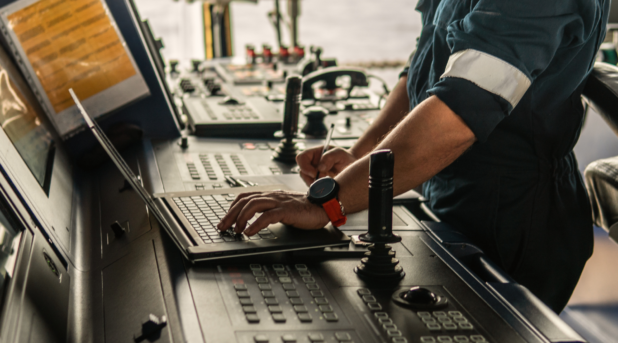What is a general average at sea and how to account for its costs?
Articles /
12 September 2024 /
Maritime economy
A general average is a situation where extraordinary measures are taken during a sea voyage to save the ship and cargo from a hazard (e.g. storm). The costs of these actions, e.g. throwing part of the cargo overboard, are then shared between all parties involved in the voyage – the shipowner and the cargo owners.
General average in Polish maritime law
In Polish maritime law, the rules on general average are governed by the Maritime Code of 2001. A general average occurs when deliberate and reasonable actions are taken to save the ship, cargo and freight from a common danger. These actions must be:
- deliberate,
- voluntary,
- directed at protecting the common interests of all parties involved in the sea voyage.
Example No. 1: A ship carrying cargo runs into rocks and begins to take on water. The captain decides to hire a tugboat to tow the vessel to the nearest port. The cost of the towing is treated as a general average and shared between all owners of the goods and the shipowner.
Example No. 2: During a storm, the captain decides to throw some of the heavy cargo overboard to prevent the ship from sinking. As a result, the ship and the rest of the cargo are saved. The costs resulting from the loss of the cargo are shared between the shipowner, the cargo owners and the carrier.
General average in international law
General average is regulated not only by national rules, but also by international rules. The York-Antwerp Rules are applied worldwide and set out detailed guidelines on the costs and losses that cen be considered a general average and how they should be allocated between the parties involved.
Expamplce No. 3: When a transport vessel sailing between two countries decides to change course due to the threat of piracy, the additional costs, such as longer travel time or increased fuel consumption, cna be accounted for as a general average under the York-Antwerp Rule.
Determining and accounting for a general average
Determining whether a situation qualifies as a general average and the allocation of costs arising from salvage operation is a process that involves specialists, known as marine loss adjuster.
They analyse documents related to the incident, such as captain’s reports, navigational data and other evidence, to determine exactly what losses and costs occurred and how they should be shared.
Example No.4: At the end of the voyage, the marine loss adjuster prepares a report determining that 500,000 PLN worth of cargo was thrown overboard to save the vessel. The liquidator determines that the cost of this action will be shared proportionally between the shipowner and the owners of the (remaining) cargo.
General average is crucial to the operation of shipping as it ensures that costs are shared fairly in situations where emergency salvage operations are undertaken. It ensures that the costs of such actions do not fall solely on one party, which could lead to conflicts and destabilisation in the industry.
Example No. 5: During an international trade voyage, a ship becomes stranded. To free it, part of the cargo is transferred to another ship. The costs of this operation are shared between all cargo onwers, as the action was intended to save entire ship and the rest of the goods carried.
Marine loss adjuster’s report
The marine loss adjuster prepares a report of his work. The report specifies, among other things, how the costs associated with the general average should be divided and is the basis for settlements between parties. It ensures transparency and fairness in the allocation of costs. At later stages, the report can be examined by the courts and, in particular, by the maritime chambers.
Summary
General average is a key institution in maritime law that ensures that the costs of salvage operations are shared fairly between all parties involved in a maritime voyage. Through this mechanism, the risks associated with making difficult decisions in maritime emergencies are shared proportionally. This in turn contributes to greater stability and safety in maritime transport, protecting the interests of all participants.
trainee attorney at law
Focuses on civil and maritime law, particularly offshore wind energy. A PhD student at the University of Szczecin, researching contracts in this field. He has been part of Zbroja Adwokaci since 2023. Read more
Other articles

NIS2 Directive in the maritime sector
Articles / 18 December 2025 / Maritime economy

Cybersecurity on a yacht – threats and guidelines
Articles / 27 November 2025 / Yachting

Statute of limitations on receivables at the end of the year – last chance to avoid losing money
Articles / 18 November 2025 / Maritime economy

System of spontaneous risk declaration in marine insurance
Articles / 6 November 2025 / Maritime economy

